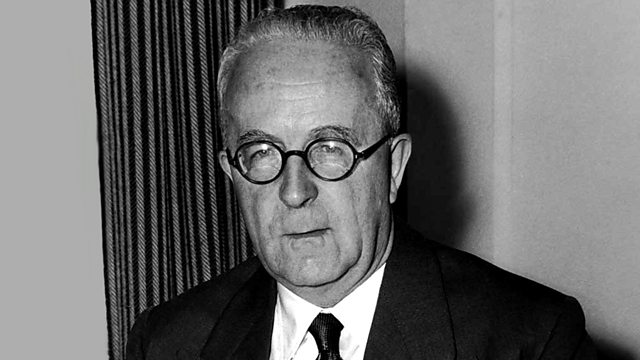
Power and the State 1
Lord Radcliffe analyses Plato's 'Republic' to explain the European ideology of power, in the first Reith Lecture from his series entitled 'Power and the State'.
This year's Reith Lecturer is British lawyer Lord Radcliffe. He was Director-General of the Ministry of Information during the Second World War, and is most famous for his role in Partition, the division of the British Indian Empire. He chaired the two boundary committees created by the passing of the Indian Independence Act, and submitted his partition map in August 1947. This led to the creation of Pakistan and India as independent nations. He examines the features of democratic society, and considers the problematic notions of power and authority in his series of seven Reith Lectures entitled 'Power and the State'.
In his first lecture, also entitled 'Power and the State', Lord Radcliffe considers the function of authority in society. He asks what prevents people in authority from abusing their power, and, conversely, what leads people to be obedient to people in authority? He explores the central role ideas of European civilisation play in our political thinking, and reflects on the historic ideologies of Plato's book 'The Republic' to contemplate the perfect human society.
Last on
More episodes
Previous
You are at the first episode
Broadcast
- Sun 4 Nov 1951 09:00大象传媒 Radio 4
New to the Reith Lectures? Here鈥檚 where to start
Four lectures recommended by the series producer.
Podcast
-
![]()
The Reith Lectures
Significant international thinkers deliver the 大象传媒's flagship annual lecture series

